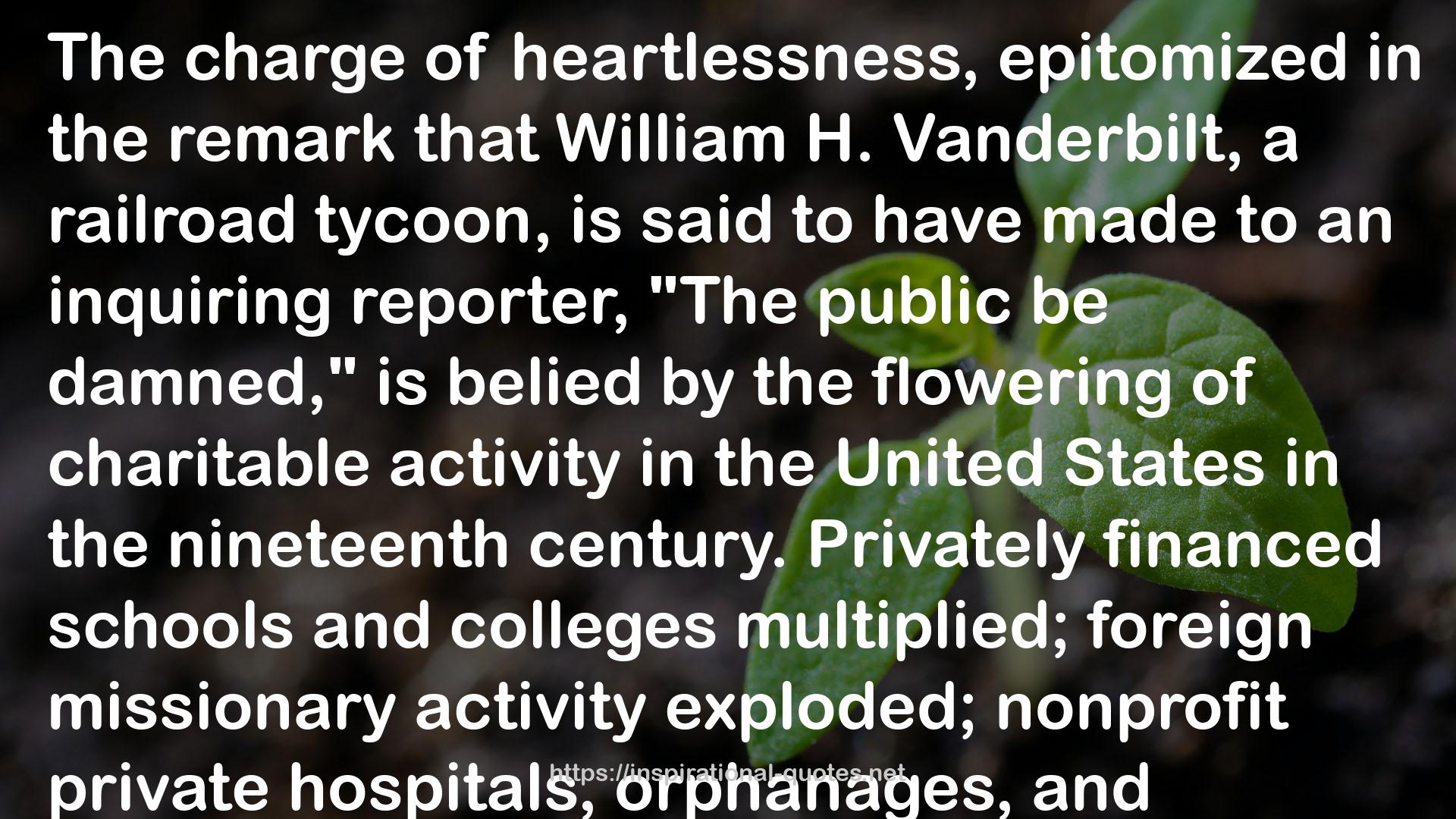" The charge of heartlessness, epitomized in the remark that William H. Vanderbilt, a railroad tycoon, is said to have made to an inquiring reporter, "The public be damned," is belied by the flowering of charitable activity in the United States in the nineteenth century. Privately financed schools and colleges multiplied; foreign missionary activity exploded; nonprofit private hospitals, orphanages, and numerous other institutions sprang up like weeds. Almost every charitable or public service organization, from the Society for the Prevention of Cruelty to Animals to the YMCA and YWCA, from the Indian Rights Association to the Salvation Army, dates from that period. Voluntary cooperation is no less effective in organizing charitable activity than in organizing production for profit. The charitable activity was matched by a burst of cultural activity—art museums, opera houses, symphonies, museums, public libraries arose in big cities and frontier towns alike. The size of government spending is one measure of government's role. Major wars aside, government spending from 1800 to 1929 did not exceed about 12 percent of the national income. Two-thirds of that was spent by state and local governments, mostly for schools and roads. As late as 1928, federal government spending amounted to about 3 percent of the national income. "
― Milton Friedman , Free to Choose: A Personal Statement
